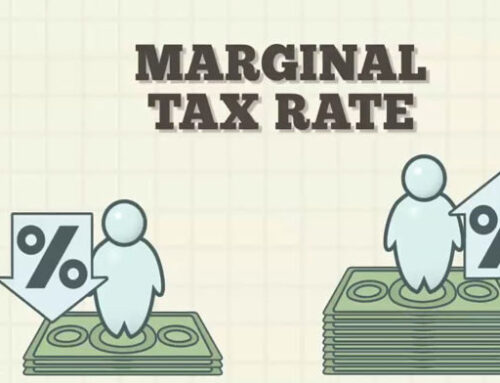Navigating Survivor Benefits from OAS and CPP: Implications and Planning Considerations
The Old Age Security (OAS) pension and the Canada Pension Plan (CPP) are invaluable monthly payments available to individuals aged 65 and older. These pension plans constitute a significant portion of retirement income for many people. However, it’s important to be aware that the sudden loss of a partner can lead to a reduction in CPP and OAS survivor benefits, which can be financially and emotionally stressful.
Despite the potential impact on retirement income, many individuals remain unaware of the possibility of OAS and CPP benefits being reduced by 40% to 100% as income increases from lower to higher-income households. Government pensions like CPP and OAS typically contribute 25% to 30% of retirement income for higher-income households, while lower-income households rely on them for 50% to 75% of their retirement income. Therefore, any reduction in these benefits can significantly affect retirement plans.
The unfortunate event of a partner’s sudden death brings to light the importance of considering such circumstances in retirement planning. It becomes crucial to understand the potential changes that may occur in this situation. Additionally, it may be advisable to reassess investment strategies, as certain retirement plans with substantial investment assets might be associated with lower risks.
By acknowledging the implications of survivor benefits from OAS and CPP and proactively planning for such scenarios, individuals can better navigate the financial challenges and uncertainties that may arise.

Unraveling CPP: Exploring Income Reductions after the Loss of a Partner
When a partner passes away, the Canada Pension Plan (CPP) implements a complex formula to determine the reduction in income for the surviving spouse. In this scenario, the CPP survivor pension is combined with the widower’s CPP pension. The crucial question that arises is: How much will the widower receive?
Navigating the CPP rules surrounding survivor benefits can often be surprising. In the best-case scenario, the deceased’s CPP benefit can be reduced by up to 40%. In more challenging circumstances, the reduction can reach up to 100%, resulting in no remaining benefits. It is vital to understand the potential outcomes in each of these situations to adequately prepare for the worst-case scenario. Numerous factors come into play that can influence the amount of survivor benefits received.
If the surviving spouse is not currently receiving CPP benefits, the survivor who is over 65 years old will receive 60% of the contributor’s retirement pension. On the other hand, if the surviving spouse is under 65 years old, they will receive 37.5% of the contributor’s retirement pension.
By grasping the nuances of CPP survivor benefits, individuals can gain a clearer understanding of the potential income reductions they may face after the loss of a partner. This knowledge allows for better financial planning and preparation to navigate the challenges associated with such circumstances.
Partners with Max CPP: Exploring the Impact on Survivor Benefits
In this scenario, both partners have reached the maximum Canada Pension Plan (CPP) amount. Unfortunately, the survivor benefit will be reduced by 100%. Delve into the implications and challenges of such a significant reduction.
Partners with High CPP: Evaluating Survivor Benefit Reductions
When both partners have a high CPP amount, the survivor benefit will be reduced by up to 66%. Understand the implications of this reduction and its potential impact on the surviving spouse’s financial well-being.
Partners Receiving an Average CPP: Examining Survivor Benefit Adjustments
If both partners receive an average CPP amount below the maximum combined payment, the survivor benefits will be reduced by 40%. Explore the implications and considerations in such cases.
Commencement of CPP Benefits: Timing Considerations for Maximum Benefit
Timing plays a crucial role in CPP benefits. Many individuals choose to delay CPP until the age of 70, ensuring a higher income throughout their lives. Discover the potential advantages of delaying CPP, including protection against inflation and investment risks. Explore whether delaying CPP until age 70 can result in greater survivor benefits in the future compared to starting CPP at age 60.
Impact on Survivor Benefits: CPP Commencement and Delays
Unfortunately, the CPP survivor benefit is calculated based on the amount received at age 65. Regardless of whether the deceased delayed CPP until age 70 or started CPP at age 60, it will not impact the survivor benefit received by the widower. Gain clarity on the connection between CPP commencement and survivor benefits to make informed decisions about CPP timing and its implications for the surviving spouse.
Also read: Demystifying Part XIII Income Tax
Navigating Survivor Scenarios: Key to a Well-Planned Retirement
Creating a survivor scenario is an essential step in understanding the potential impact of a partner’s passing on your retirement plan. If you seek clarity on the financial implications associated with these scenarios, it is advisable to consult a financial planner who can provide expert guidance.
Explore the Various Impacts and Reductions in OAS and CPP
Unveiling the Impacts: Exploring OAS and CPP Reductions
Understanding the intricate impacts and reductions in Old Age Security (OAS) and Canada Pension Plan (CPP) is paramount. Delve into the details of these programs to ensure comprehensive retirement income planning for survivor benefits.
Embark on Retirement Income Planning: Contact Us for Expert Assistance
If you have any questions or wish to commence your retirement income planning journey, do not hesitate to reach out. Contact us today for personalized guidance and support.
Navigating Life After the Loss of a Spouse: A Financial Reality
Navigating Life After Loss: The Financial Realities for Widows and Widowers
The aftermath of losing a spouse can be an overwhelming experience for many individuals. It is common for family members to encourage the surviving spouse to apply for the Canada Pension Plan survivor’s benefit. However, widowers are often taken aback by how little they have planned for and how challenging it can be to sustain a livelihood. Gain insights into the importance of comprehensive financial planning and the potential gaps that can arise after the loss of a spouse.

Answering Your Questions about CPP, Survivors, and OAS
- What happens if the partner passes away before applying for CPP? The deceased spouse’s CPP benefits depend on their contributions from age 25 to 65. The survivor will receive 37.5% of the pension if they are below 65, and 60% if they are 65 or above.
- What if the survivor has children under 18? Families with children under 18 may receive a monthly portion per child. The current government payment is $250.27 per month per child. Additionally, children between 18 and 24 may be eligible for support if they are enrolled in post-secondary education.
- What if the couple lives overseas? CPP Survivor Benefits are accessible in any country, even if the pensioners reside outside Canada. However, certain conditions must be met, including having spent 20 years as Canadian residents, being 65 years of age, and being a Canadian citizen upon departure. The same conditions apply to Old Age Security.
- What happens if the couple is separated? If the deceased spouse was living in a common-law relationship with someone else, the surviving spouse may still be entitled to a share of the benefits. However, if the deceased spouse was living with someone else while still legally married, the common-law partner would receive the benefits.
- What happens to OAS when a partner dies? Unfortunately, the impact on OAS for the survivor is more severe. When a partner passes away, the deceased’s OAS benefits are entirely lost, and there is no survivor benefit for OAS.
Recent Posts
FAQ
What happens if the surviving spouse is under 65?
A surviving spouse below the age of 65 will receive 37.5% of the partner's pension along with a flat rate that increases annually. As the surviving spouse reaches 65 or above, their percentage will rise to 60%.



